- Home
- J. R. R. Tolkien
The Lord of the Rings Page 9
The Lord of the Rings Read online
Page 9
‘Known?’ said Gandalf. ‘I have known much that only the Wise know, Frodo. But if you mean “known about this ring”, well, I still do not know, one might say. There is a last test to make. But I no longer doubt my guess.
‘When did I first begin to guess?’ he mused, searching back in memory. ‘Let me see – it was in the year that the White Council drove the Dark Power from Mirkwood, just before the Battle of Five Armies, that Bilbo found his ring. A shadow fell on my heart then, though I did not know yet what I feared. I wondered often how Gollum came by a Great Ring, as plainly it was – that at least was clear from the first. Then I heard Bilbo’s strange story of how he had “won” it, and I could not believe it. When I at last got the truth out of him, I saw at once that he had been trying to put his claim to the ring beyond doubt. Much like Gollum with his “birthday-present”. The lies were too much alike for my comfort. Clearly the ring had an unwholesome power that set to work on its keeper at once. That was the first real warning I had that all was not well. I told Bilbo often that such rings were better left unused; but he resented it, and soon got angry. There was little else that I could do. I could not take it from him without doing greater harm; and I had no right to do so anyway. I could only watch and wait. I might perhaps have consulted Saruman the White, but something always held me back.’
‘Who is he?’ asked Frodo. ‘I have never heard of him before.’
‘Maybe not,’ answered Gandalf. ‘Hobbits are, or were, no concern of his. Yet he is great among the Wise. He is the chief of my order and the head of the Council. His knowledge is deep, but his pride has grown with it, and he takes ill any meddling. The lore of the Elven-rings, great and small, is his province. He has long studied it, seeking the lost secrets of their making; but when the Rings were debated in the Council, all that he would reveal to us of his ring-lore told against my fears. So my doubt slept – but uneasily. Still I watched and I waited.
‘And all seemed well with Bilbo. And the years passed. Yes, they passed, and they seemed not to touch him. He showed no signs of age. The shadow fell on me again. But I said to myself: “After all he comes of a long-lived family on his mother’s side. There is time yet. Wait!”
‘And I waited. Until that night when he left this house. He said and did things then that filled me with a fear that no words of Saruman could allay. I knew at last that something dark and deadly was at work. And I have spent most of the years since then in finding out the truth of it.’
‘There wasn’t any permanent harm done, was there?’ asked Frodo anxiously. ‘He would get all right in time, wouldn’t he? Be able to rest in peace, I mean?’
‘He felt better at once,’ said Gandalf. ‘But there is only one Power in this world that knows all about the Rings and their effects; and as far as I know there is no Power in the world that knows all about hobbits. Among the Wise I am the only one that goes in for hobbit-lore: an obscure branch of knowledge, but full of surprises. Soft as butter they can be, and yet sometimes as tough as old tree-roots. I think it likely that some would resist the Rings far longer than most of the Wise would believe. I don’t think you need worry about Bilbo.
‘Of course, he possessed the ring for many years, and used it, so it might take a long while for the influence to wear off – before it was safe for him to see it again, for instance. Otherwise, he might live on for years, quite happily: just stop as he was when he parted with it. For he gave it up in the end of his own accord: an important point. No, I was not troubled about dear Bilbo any more, once he had let the thing go. It is for you that I feel responsible.
‘Ever since Bilbo left I have been deeply concerned about you, and about all these charming, absurd, helpless hobbits. It would be a grievous blow to the world, if the Dark Power overcame the Shire; if all your kind, jolly, stupid Bolgers, Hornblowers, Boffins, Bracegirdles, and the rest, not to mention the ridiculous Bagginses, became enslaved.’
Frodo shuddered. ‘But why should we be?’ he asked. ‘And why should he want such slaves?’
‘To tell you the truth,’ replied Gandalf, ‘I believe that hitherto – hitherto, mark you – he has entirely overlooked the existence of hobbits. You should be thankful. But your safety has passed. He does not need you – he has many more useful servants – but he won’t forget you again. And hobbits as miserable slaves would please him far more than hobbits happy and free. There is such a thing as malice and revenge.’
‘Revenge?’ said Frodo. ‘Revenge for what? I still don’t understand what all this has to do with Bilbo and myself, and our ring.’
‘It has everything to do with it,’ said Gandalf. ‘You do not know the real peril yet; but you shall. I was not sure of it myself when I was last here; but the time has come to speak. Give me the ring for a moment.’
Frodo took it from his breeches-pocket, where it was clasped to a chain that hung from his belt. He unfastened it and handed it slowly to the wizard. It felt suddenly very heavy, as if either it or Frodo himself was in some way reluctant for Gandalf to touch it.
Gandalf held it up. It looked to be made of pure and solid gold. ‘Can you see any markings on it?’ he asked.
‘No,’ said Frodo. ‘There are none. It is quite plain, and it never shows a scratch or sign of wear.’
‘Well then, look!’ To Frodo’s astonishment and distress the wizard threw it suddenly into the middle of a glowing corner of the fire. Frodo gave a cry and groped for the tongs; but Gandalf held him back.
‘Wait!’ he said in a commanding voice, giving Frodo a quick look from under his bristling brows.
No apparent change came over the ring. After a while Gandalf got up, closed the shutters outside the window, and drew the curtains. The room became dark and silent, though the clack of Sam’s shears, now nearer to the windows, could still be heard faintly from the garden. For a moment the wizard stood looking at the fire; then he stooped and removed the ring to the hearth with the tongs, and at once picked it up. Frodo gasped.
‘It is quite cool,’ said Gandalf. ‘Take it!’ Frodo received it on his shrinking palm: it seemed to have become thicker and heavier than ever.
‘Hold it up!’ said Gandalf. ‘And look closely!’
As Frodo did so, he now saw fine lines, finer than the finest pen-strokes, running along the ring, outside and inside: lines of fire that seemed to form the letters of a flowing script. They shone piercingly bright, and yet remote, as if out of a great depth.
‘I cannot read the fiery letters,’ said Frodo in a quavering voice.
‘No,’ said Gandalf, ‘but I can. The letters are Elvish, of an ancient mode, but the language is that of Mordor, which I will not utter here. But this in the Common Tongue is what is said, close enough:
One Ring to rule them all, One Ring to find them,
One Ring to bring them all and in the darkness bind them.
It is only two lines of a verse long known in Elven-lore:
Three Rings for the Elven-kings under the sky,
Seven for the Dwarf-lords in their halls of stone,
Nine for Mortal Men doomed to die,
One for the Dark Lord on his dark throne
In the Land of Mordor where the Shadows lie.
One Ring to rule them all, One Ring to find them,
One Ring to bring them all and in the darkness bind them
In the Land of Mordor where the Shadows lie.’
He paused, and then said slowly in a deep voice: ‘This is the Master-ring, the One Ring to rule them all. This is the One Ring that he lost many ages ago, to the great weakening of his power. He greatly desires it – but he must not get it.’
Frodo sat silent and motionless. Fear seemed to stretch out a vast hand, like a dark cloud rising in the East and looming up to engulf him. ‘This ring!’ he stammered. ‘How, how on earth did it come to me?’
‘Ah!’ said Gandalf. ‘That is a very long story. The beginnings lie back in the Black Years, which only the lore-masters now remember. If I were to tell you all that ta
le, we should still be sitting here when Spring had passed into Winter.
‘But last night I told you of Sauron the Great, the Dark Lord. The rumours that you have heard are true: he has indeed arisen again and left his hold in Mirkwood and returned to his ancient fastness in the Dark Tower of Mordor. That name even you hobbits have heard of, like a shadow on the borders of old stories. Always after a defeat and a respite, the Shadow takes another shape and grows again.’
‘I wish it need not have happened in my time,’ said Frodo.
‘So do I,’ said Gandalf, ‘and so do all who live to see such times. But that is not for them to decide. All we have to decide is what to do with the time that is given us. And already, Frodo, our time is beginning to look black. The Enemy is fast becoming very strong. His plans are far from ripe, I think, but they are ripening. We shall be hard put to it. We should be very hard put to it, even if it were not for this dreadful chance.
‘The Enemy still lacks one thing to and knowledge to beat down all resistance, break the last defences, and cover all the lands in a second darkness. He lacks the One Ring.
‘The Three, fairest of all, the Elf-lords hid from him, and his hand never touched them or sullied them. Seven the Dwarf-kings possessed, but three he has recovered, and the others the dragons have consumed. Nine he gave to Mortal Men, proud and great, and so ensnared them. Long ago they fell under the dominion of the One, and they became Ringwraiths, shadows under his great Shadow, his most terrible servants. Long ago. It is many a year since the Nine walked abroad. Yet who knows? As the Shadow grows once more, they too may walk again. But come! We will not speak of such things even in the morning of the Shire.
‘So it is now: the Nine he has gathered to himself; the Seven also, or else they are destroyed. The Three are hidden still. But that no longer troubles him. He only needs the One; for he made that Ring himself, it is his, and he let a great part of his own former power pass into it, so that he could rule all the others. If he recovers it, then he will command them all again, wherever they be, even the Three, and all that has been wrought with them will be laid bare, and he will be stronger than ever.
‘And this is the dreadful chance, Frodo. He believed that the One had perished; that the Elves had destroyed it, as should have been done. But he knows now that it has not perished, that it has been found. So he is seeking it, seeking it, and all his thought is bent on it. It is his great hope and our great fear.’
‘Why, why wasn’t it destroyed?’ cried Frodo. ‘And how did the Enemy ever come to lose it, if he was so strong, and it was so precious to him?’ He clutched the Ring in his hand, as if he saw already dark fingers stretching out to seize it.
‘It was taken from him,’ said Gandalf. ‘The strength of the Elves to resist him was greater long ago; and not all Men were estranged from them. The Men of Westernesse came to their aid. That is a chapter of ancient history which it might be good to recall; for there was sorrow then too, and gathering dark, but great valour, and great deeds that were not wholly vain. One day, perhaps, I will tell you all the tale, or you shall hear it told in full by one who knows it best.
‘But for the moment, since most of all you need to know how this thing came to you, and that will be tale enough, this is all that I will say. It was Gil-galad, Elven-king and Elendil of Westernesse who overthrew Sauron, though they themselves perished in the deed; and Isildur Elendil’s son cut the Ring from Sauron’s hand and took it for his own. Then Sauron was vanquished and his spirit fled and was hidden for long years, until his shadow took shape again in Mirkwood.
‘But the Ring was lost. It fell into the Great River, Anduin, and vanished. For Isildur was marching north along the east banks of the River, and near the Gladden Fields he was waylaid by the Orcs of the Mountains, and almost all his folk were slain. He leaped into the waters, but the Ring slipped from his finger as he swam, and then the Orcs saw him and killed him with arrows.’
Gandalf paused. ‘And there in the dark pools amid the Gladden Fields,’ he said, ‘the Ring passed out of knowledge and legend; and even so much of its history is known now only to a few, and the Council of the Wise could discover no more. But at last I can carry on the story, I think.
‘Long after, but still very long ago, there lived by the banks of the Great River on the edge of Wilderland a clever-handed and quiet-footed little people. I guess they were of hobbit-kind; akin to the fathers of the fathers of the Stoors, for they loved the River, and often swam in it, or made little boats of reeds. There was among them a family of high repute, for it was large and wealthier than most, and it was ruled by a grandmother of the folk, stern and wise in old lore, such as they had. The most inquisitive and curious-minded of that family was called Sméagol. He was interested in roots and beginnings; he dived into deep pools; he burrowed under trees and growing plants; he tunnelled into green mounds; and he ceased to look up at the hill-tops, or the leaves on trees, or the flowers opening in the air: his head and his eyes were downward.
‘He had a friend called Déagol, of similar sort, sharper-eyed but not so quick and strong. On a time they took a boat and went down to the Gladden Fields, where there were great beds of iris and flowering reeds. There Sméagol got out and went nosing about the banks but Déagol sat in the boat and fished. Suddenly a great fish took his hook, and before he knew where he was, he was dragged out and down into the water, to the bottom. Then he let go of his line, for he thought he saw something shining in the river-bed; and holding his breath he grabbed at it.
‘Then up he came spluttering, with weeds in his hair and a handful of mud; and he swam to the bank. And behold! when he washed the mud away, there in his hand lay a beautiful golden ring; and it shone and glittered in the sun, so that his heart was glad. But Sméagol had been watching him from behind a tree, and as Déagol gloated over the ring, Sméagol came softly up behind.
‘ “Give us that, Déagol, my love,” said Sméagol, over his friend’s shoulder.
‘ “Why?” said Déagol.
‘ “Because it’s my birthday, my love, and I wants it,” said Sméagol.
‘ “I don’t care,” said Déagol. “I have given you a present already, more than I could afford. I found this, and I’m going to keep it.”
‘ “Oh, are you indeed, my love,” said Sméagol; and he caught Déagol by the throat and strangled him, because the gold looked so bright and beautiful. Then he put the ring on his finger.
‘No one ever found out what had become of Déagol; he was murdered far from home, and his body was cunningly hidden. But Sméagol returned alone; and he found that none of his family could see him, when he was wearing the ring. He was very pleased with his discovery and he concealed it; and he used it to find out secrets, and he put his knowledge to crooked and malicious uses. He became sharp-eyed and keen-eared for all that was hurtful. The ring had given him power according to his stature. It is not to be wondered at that he became very unpopular and was shunned (when visible) by all his relations. They kicked him, and he bit their feet. He took to thieving, and going about muttering to himself, and gurgling in his throat. So they called him Gollum, and cursed him, and told him to go far away; and his grandmother, desiring peace, expelled him from the family and turned him out of her hole.
‘He wandered in loneliness, weeping a little for the hardness of the world, and he journeyed up the River, till he came to a stream that flowed down from the mountains, and he went that way. He caught fish in deep pools with invisible fingers and ate them raw. One day it was very hot, and as he was bending over a pool, he felt a burning on the back of his head, and a dazzling light from the water pained his wet eyes. He wondered at it, for he had almost forgotten about the Sun. Then for the last time he looked up and shook his fist at her.
‘But as he lowered his eyes, he saw far ahead the tops of the Misty Mountains, out of which the stream came. And he thought suddenly: “It would be cool and shady under those mountains. The Sun could not watch me there. The roots of those mountains must be r
oots indeed; there must be great secrets buried there which have not been discovered since the beginning.”
‘So he journeyed by night up into the highlands, and he found a little cave out of which the dark stream ran; and he wormed his way like a maggot into the heart of the hills, and vanished out of all knowledge. The Ring went into the shadows with him, and even the maker, when his power had begun to grow again, could learn nothing of it.’
‘Gollum!’ cried Frodo. ‘Gollum? Do you mean that this is the very Gollum-creature that Bilbo met? How loathsome!’
‘I think it is a sad story,’ said the wizard, ‘and it might have happened to others, even to some hobbits that I have known.’
‘I can’t believe that Gollum was connected with hobbits, however distantly,’ said Frodo with some heat. ‘What an abominable notion!’
‘It is true all the same,’ replied Gandalf. ‘About their origins, at any rate, I know more than hobbits do themselves. And even Bilbo’s story suggests the kinship. There was a great deal in the background of their minds and memories that was very similar. They understood one another remarkably well, very much better than a hobbit would understand, say, a Dwarf, or an Orc, or even an Elf. Think of the riddles they both knew, for one thing.’
‘Yes,’ said Frodo. ‘Though other folks besides hobbits ask riddles, and of much the same sort. And hobbits don’t cheat. Gollum meant to cheat all the time. He was just trying to put poor Bilbo off his guard. And I daresay it amused his wickedness to start a game which might end in providing him with an easy victim, but if he lost would not hurt him.’
‘Only too true, I fear,’ said Gandalf. ‘But there was something else in it, I think, which you don’t see yet. Even Gollum was not wholly ruined. He had proved tougher than even one of the Wise would have guessed – as a hobbit might. There was a little corner of his mind that was still his own, and light came through it, as through a chink in the dark: light out of the past. It was actually pleasant, I think, to hear a kindly voice again, bringing up memories of wind, and trees, and sun on the grass, and such forgotten things.

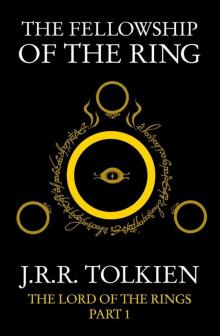 The Fellowship of the Ring
The Fellowship of the Ring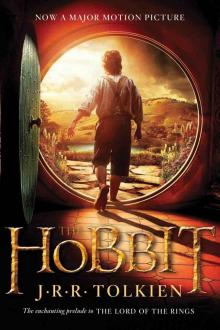 The Hobbit
The Hobbit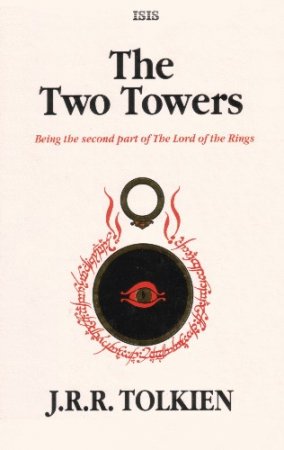 The Two Towers
The Two Towers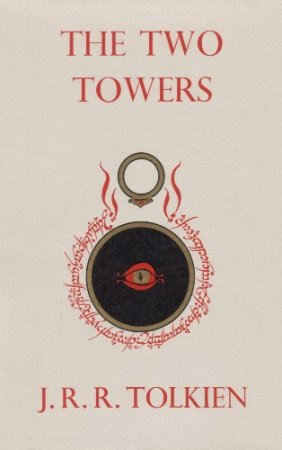 The Return of the King
The Return of the King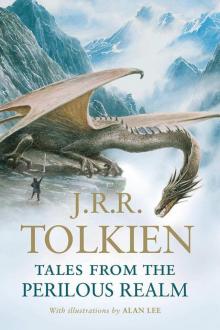 Tales From the Perilous Realm
Tales From the Perilous Realm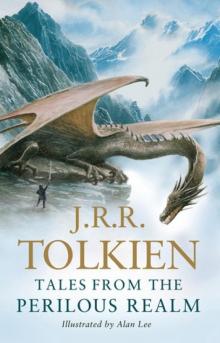 Leaf by Niggle
Leaf by Niggle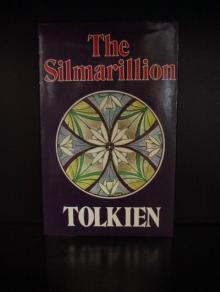 The Silmarillon
The Silmarillon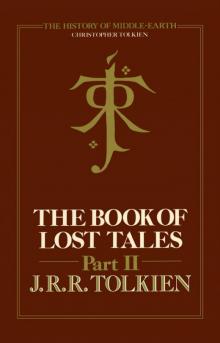 The Book of Lost Tales, Part Two
The Book of Lost Tales, Part Two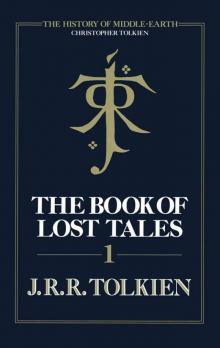 The Book of Lost Tales, Part One
The Book of Lost Tales, Part One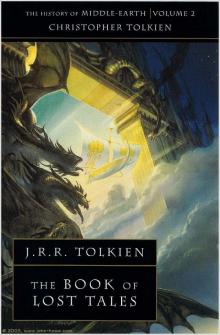 The Book of Lost Tales 2
The Book of Lost Tales 2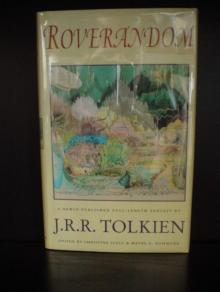 Roverandom
Roverandom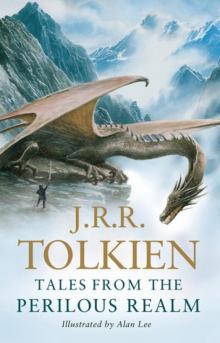 Smith of Wootton Major
Smith of Wootton Major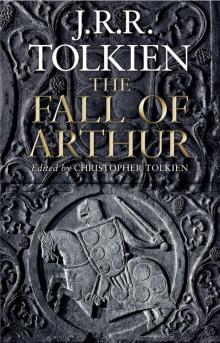 The Fall of Arthur
The Fall of Arthur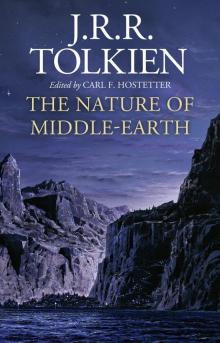 The Nature of Middle-earth
The Nature of Middle-earth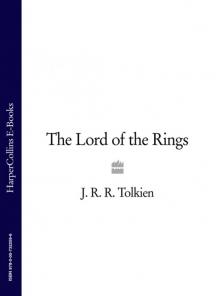 The Lord of the Rings: The Fellowship of the Ring, The Two Towers, The Return of the King
The Lord of the Rings: The Fellowship of the Ring, The Two Towers, The Return of the King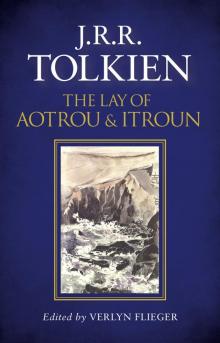 The Lay of Aotrou and Itroun
The Lay of Aotrou and Itroun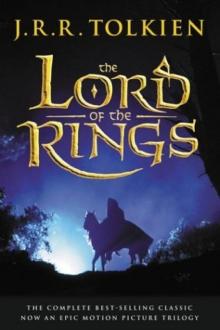 lord_rings.qxd
lord_rings.qxd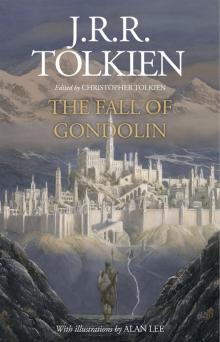 The Fall of Gondolin
The Fall of Gondolin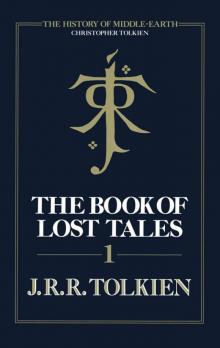 The Book of Lost Tales, Part 1
The Book of Lost Tales, Part 1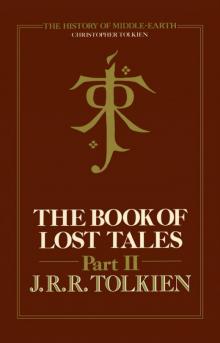 The Book of Lost Tales, Part 2
The Book of Lost Tales, Part 2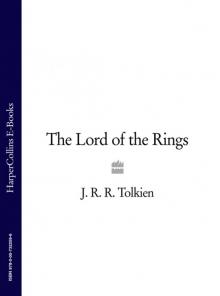 The Lord of the Rings
The Lord of the Rings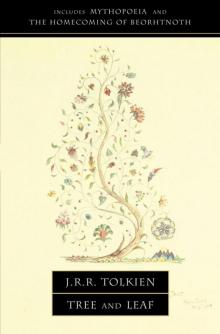 Tree and Leaf
Tree and Leaf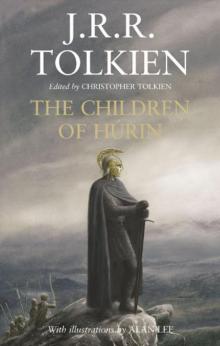 The Children of Húrin
The Children of Húrin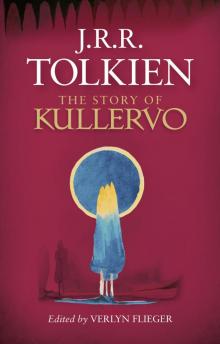 The Story of Kullervo
The Story of Kullervo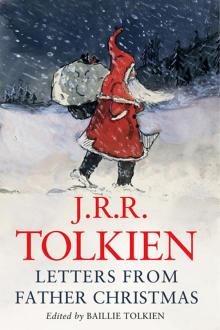 Letters From Father Christmas
Letters From Father Christmas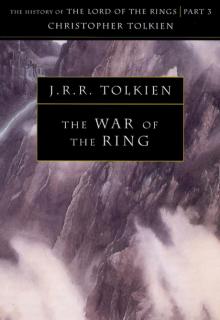 The History of Middle Earth: Volume 8 - The War of the Ring
The History of Middle Earth: Volume 8 - The War of the Ring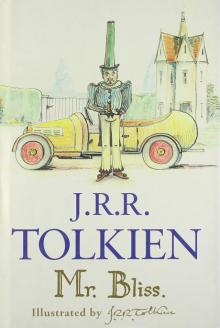 Mr. Bliss
Mr. Bliss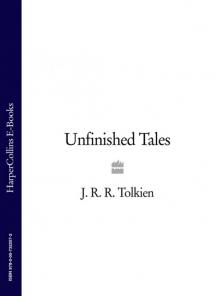 Unfinished Tales
Unfinished Tales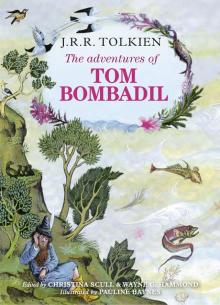 The Adventures of Tom Bombadil
The Adventures of Tom Bombadil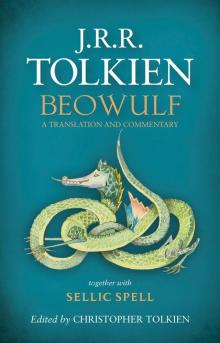 Beowulf: A Translation and Commentary, together with Sellic Spell
Beowulf: A Translation and Commentary, together with Sellic Spell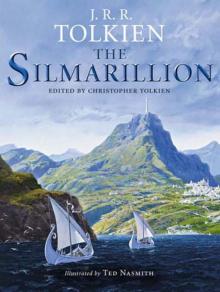 The Silmarillion
The Silmarillion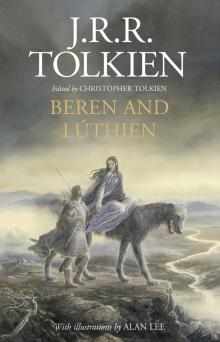 Beren and Lúthien
Beren and Lúthien